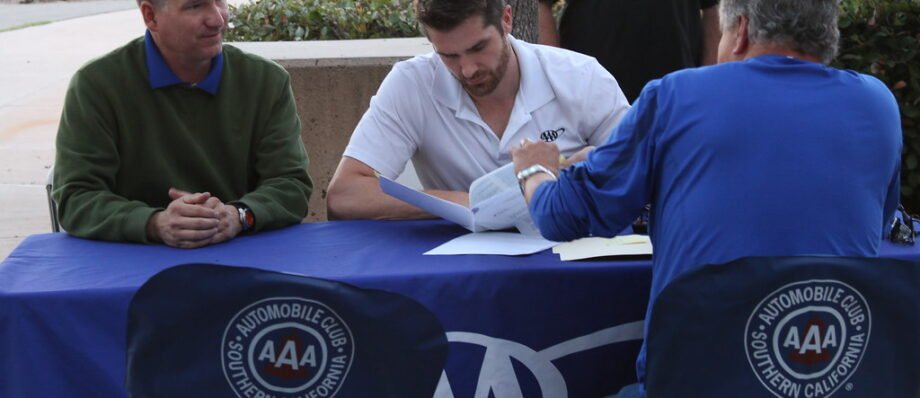How Dash Cams Help Prevent Fraudulent Insurance Claims
Imagine this: You’re driving home after a long day, when suddenly another car swerves into your lane and clips your front bumper. At first, it seems like a minor accident—until the other driver insists it was your fault. Then, days later, you receive an exaggerated insurance claim for damages and injuries you know weren’t your doing.
This scenario is more common than you’d think. False insurance claims cost the industry billions each year, leading to increased premiums for honest drivers. That’s where dash cams come in. By providing clear, timestamped video evidence, dash cams help protect drivers from fraudulent claims and insurance scams. But how exactly do they work in your favor? Let’s break it down.
The Role of Dash Cams in Preventing Insurance Fraud
1. Providing Undeniable Evidence of Accidents
One of the biggest advantages of having a dash cam is its ability to record accidents as they happen. If another driver tries to blame you for a crash, your footage can show exactly what occurred, including:
- The sequence of events leading up to the accident
- Traffic signals and road conditions
- The actions of the other driver
According to the National Insurance Crime Bureau (NICB), staged accidents are a growing problem in the U.S., with organized crime rings deliberately causing crashes to collect insurance payouts. A dash cam can expose these schemes and prevent you from becoming a victim.
Source: National Insurance Crime Bureau (NICB)
2. Preventing “Crash-for-Cash” Schemes
A common type of insurance fraud is the “crash-for-cash” scam, where fraudsters intentionally cause an accident, then file inflated claims for damages or fake injuries. These scams often involve:
- Sudden, unnecessary braking to cause a rear-end collision
- Fake witnesses who corroborate the scammer’s version of events
- Multiple passengers exaggerating injuries to claim medical expenses
Dash cams can instantly debunk these fraudulent claims by capturing the exact moment of impact, showing whether the accident was staged or avoidable.
Source: Federal Trade Commission (FTC)
3. Disputing False Liability Claims
If another driver falsely accuses you of causing an accident, your dash cam footage can help prove your innocence. This is particularly useful in cases where:
- The other driver runs a red light but claims you were at fault
- You had the right of way, but they insist you were reckless
- They claim you sideswiped them, but your footage shows otherwise
Having video evidence can significantly improve your chances of winning an insurance dispute or even a court case.
Source: Insurance Information Institute (III)
4. Capturing Hit-and-Run Incidents
Hit-and-run accidents leave victims struggling with costly repairs and insurance battles. A dash cam can capture:
- The license plate of the fleeing vehicle
- The make, model, and color of the car
- The time and location of the incident
This footage can help law enforcement track down the responsible driver and ensure you’re not left paying for damages you didn’t cause.
Source: National Highway Traffic Safety Administration (NHTSA)
5. Helping Insurance Companies Detect Fraud
Insurance companies are cracking down on fraudulent claims, and many now accept dash cam footage as legitimate evidence. By providing clear video proof, you help insurers:
- Accurately assess accident claims
- Identify dishonest claimants
- Reduce payout costs, which helps keep premiums lower for all drivers
Some insurers even offer discounts for drivers who use dash cams, recognizing their value in reducing fraudulent claims.
Steps to Use Dash Cam Footage in an Insurance Claim
If you’re involved in an accident and need to use your dash cam footage for an insurance claim, follow these steps:
- Save and Back Up the Footage – Immediately transfer the video to a secure location (cloud storage, USB drive, or external hard drive).
- Review the Footage – Ensure it clearly captures the incident and supports your claim.
- Submit the Footage to Your Insurer – Follow your insurance company’s guidelines for submitting digital evidence.
- Provide Additional Documentation – Include police reports, witness statements, and photos if applicable.
- Cooperate with Investigators – Be prepared to answer questions and provide further context if needed.
FAQs About Dash Cams and Insurance Claims
1. Do all insurance companies accept dash cam footage?
Most insurers accept dash cam footage, but policies vary. Check with your provider to confirm how they handle video evidence.
2. Can dash cam footage be used against me?
Yes. If the footage shows you were at fault, the insurance company may use it to deny your claim or reduce your payout.
3. Can a dash cam lower my insurance rates?
Some insurers offer discounts for drivers with dash cams, as they help prevent fraudulent claims. However, this isn’t universal—check with your provider.
4. Are dash cams legal in all states?
Dash cams are legal in most places, but some states have restrictions on audio recording and windshield placement. Always check local laws before installing one.
5. What features should I look for in a dash cam for insurance protection?
- High-resolution video (1080p or higher)
- Night vision for clear footage in low light
- GPS tracking to log speed and location
- Loop recording to ensure continuous recording
- Impact detection to automatically save collision footage
Final Thoughts: A Dash Cam Is a Smart Investment
Dash cams are more than just handy gadgets—they’re powerful tools for protecting yourself against false insurance claims. Whether it’s a staged accident, a wrongful liability dispute, or a hit-and-run, having clear video evidence can save you from financial and legal headaches.
By investing in a quality dash cam and understanding how to use it effectively, you can drive with confidence, knowing you have an extra layer of protection on the road.
Get the Compensation You Deserve After Your Accident
If you’ve been injured in a car crash that wasn’t your fault, don’t settle for silence or confusion. Lawayer.com connects you with› experienced attorneys who can fight for your rights and help you recover what you’re owed. Time matters—take the first step now



